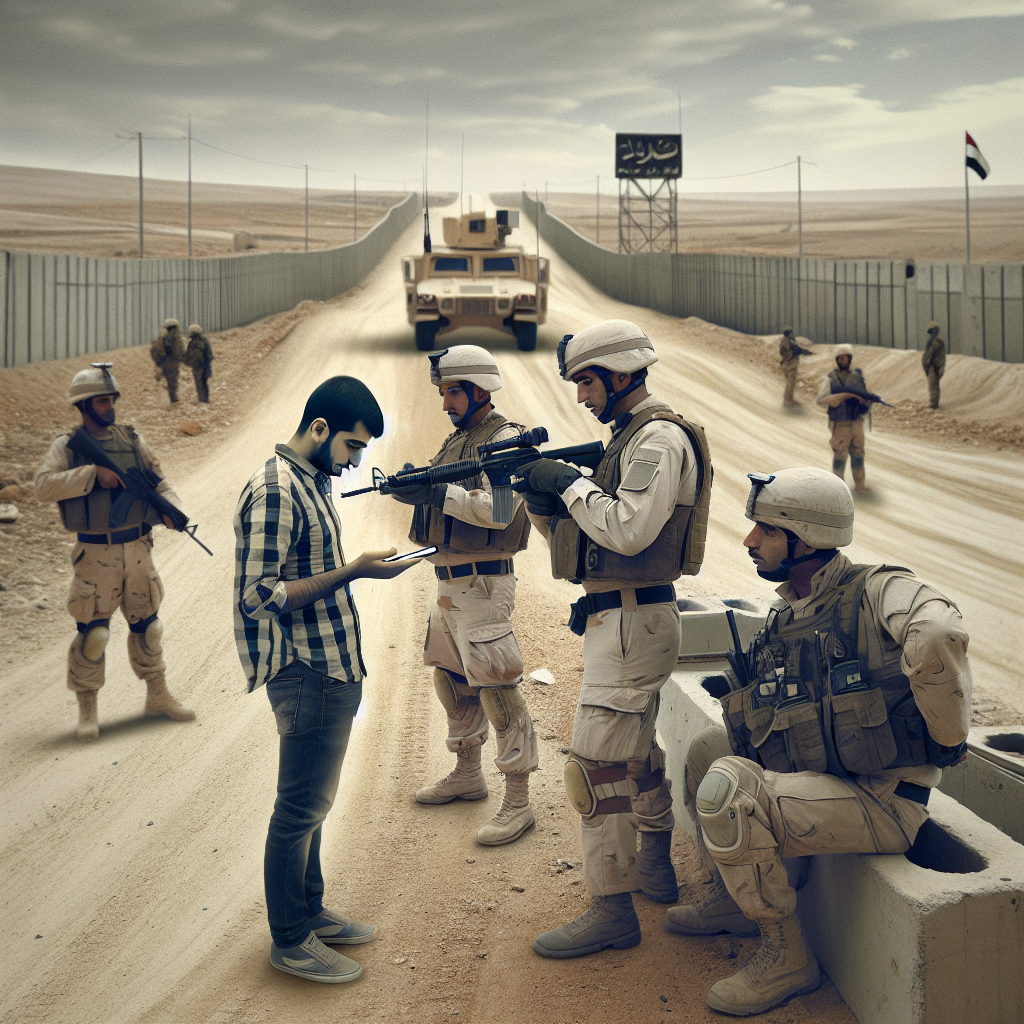Listen up, truth seekers and hypocrisy hunters—today, we rip the camouflage off a checkpoint charade that reeks of occupation theatrics and Orwellian overreach. Sit tight, because this isn’t just news—it’s a masterclass in dystopian absurdity, brought to you daily by the state that wants press freedom in New York and power fantasies in the West Bank.
On a dusty stretch of contested land, somewhere between a dreaming Palestine and an ever-expanding Israeli reality, a Palestinian man was stopped at a military checkpoint—one of many anatomical reminders of daily humiliation in the occupied West Bank. What did the ID check reveal? No weapon. No contraband. No secret documents labeled “Top Hamas, Do Not Share.” No, folks, this man’s ultimate crime was possessing a photo—yes, a mere photo—of Gaza on his phone. That’s it. That’s the headline. Welcome to 2024, where your gallery app can get you a beatdown and nobody bats an eye in the halls of democratic hypocrisy.
Now, let’s deconstruct the stage play.
Picture it: Israeli soldiers, armed to the gills, encountering a photo of Gaza—as if the battered, besieged strip of land plastered across headlines and drone feed videos is some state secret. A quick swipe, a raised eyebrow, and suddenly it’s fists before facts, boots before banter. The man is beaten on the spot. No charge sheet. No “we apologize for the inconvenience.” Only bruises, broken dignity, and the silent growl of unchecked power.
And to the apologists and spin doctors out there already drafting their “security concern” manifestos—don’t. Spare us the farce. A PHOTO OF GAZA is not a weapon. It’s not an incitement. It’s evidence, if anything, that Gazans exist—to some, an inconvenient truth. But hey, who needs habeas corpus when you’re running checkpoints like personal fiefdoms?
Let’s pull back the curtain further, shall we?
Because the real story here isn’t just about one man and one beating—it’s about a system that punishes memory. It’s about a regime that’s so paranoid, so deeply intoxicated on its own narrative, that even an image of Palestinian existence is treated like contraband. Gazans already live in what’s arguably the world’s largest open-air prison—and now, apparently, their images aren’t allowed to cross borders either?
What’s next, Tel Aviv? Outlawing empathy?
Let me spell it out for the pearl-clutching international community: when soldiers beat a man for a photo, they’re not protecting security—they’re enforcing silence. This is about narrative control, old-school colonial style. And the West—oh, the righteous West—will, at best, tweet “deep concern” from air-conditioned embassies while signing new defense contracts next Tuesday.
Let’s not forget the context seasoning this stew pot of absurdity: military checkpoints dotting Palestinian territory like metastasized tumors, where Palestinians live under military law, judged by uniformed men with itchy trigger fingers and the diplomatic invincibility of Teflon.
This should outrage you. If it doesn’t, you’re either not paying attention or you’ve muted your moral compass. Ask yourself—if this happened in Berlin or Boston, would we tolerate it? Or would NATO be hoofing down doors by breakfast?
But here’s the kicker, folks—the ultimate tell. Photos terrify regimes that rely on myth. A snapshot of Gaza means someone’s remembering what authorities want forgotten—that beneath the rubble and rockets are lives, laughter, and loss. By beating a man for that image, the soldiers weren’t just silencing him—they were lashing out at the truth itself.
And let me remind you, dear readers, truth doesn’t bruise. People do.
So to the architects of impunity: the game’s on, and I play to win. Your blacked-out headlines and choreographed silence won’t stop people from seeing Gaza, even if it’s pixel by pixel, through cracked phone screens and cloud memory.
History’s watching. And guess what? It screenshots everything.
– Mr. 47







